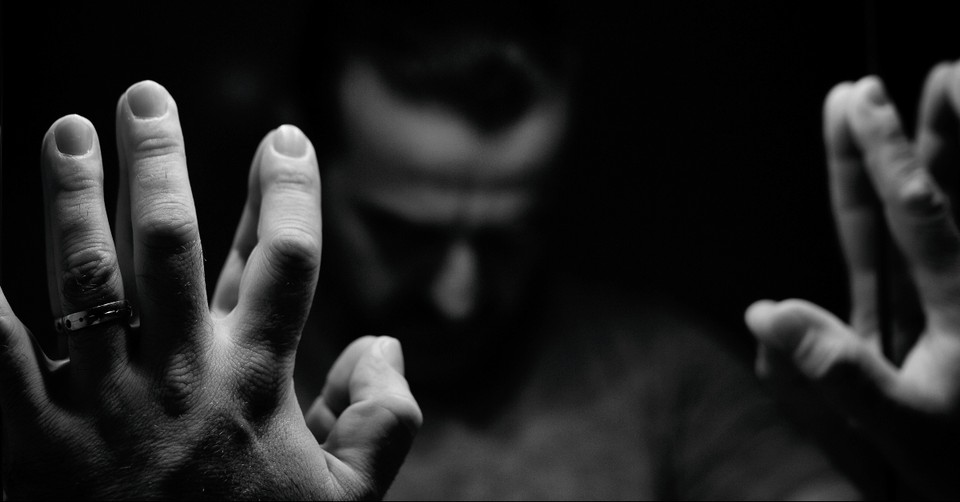What the Book of Job Teaches Us about Our One True Identity

The story of Job is a popular one in the Bible. It is referenced to provoke discussion on many topics: how to comfort another through dreadful experiences, the ultimate sovereignty of God, and what to do when we are the one going through a truly terrible time. In my college Old Testament course, our teacher alluded to the fact that some believe the story is just too awful and too dire to be real. Those theorists believe Job was a fable passed through the times to teach the listeners on the aforementioned topics.
God is sovereign, and who are we to question His ways? Life can be very hard. In the end, God honors our faithfulness. I used to believe this as well. It didn’t make sense that a God could be that cruel. It’s easier to believe the story of Job when we soften it by saying it’s most likely not completely true. We could get into the sovereignty of God, the chaos of the world, and how sin can create similar terrible experiences in our lives, but the point of this article is to highlight one key fact: Life is hard.
Imagine Losing Everything
It may not be hard now, but at some point, everyone experiences something that rocks them to their core, challenging their beliefs and identity. I don’t think many Westerners like the story of Job because it’s a bit… uncomfortable.
Let’s explore a 21st-century analogy. You are killing it at your job. You have rocketed up through the ranks and have made some wonderful changes at work. Your employees love you! This is not in opposition to raising a family. You are still a present and intentional parent and spouse. Your kids love you, and you love them! You are respected in your community, and frequently, others ask you for guidance and advice because, again, you are killing it! Throughout this peak period, you have remained humble, never gloating, only pointing your success back to God.
Now, think of losing all of that. You lose your job because of budget cuts, and your employees all get fired, which means you start defaulting on your mortgage payments. There is less food available. Your children are diagnosed with a cureless disease and eventually die, and your spouse later contracts another sickness that kills them just a year after your children passed away. Your house is repossessed, but before it goes through, it burns down. Your car randomly explodes, and eventually, you contract another disease that doesn’t kill you, but leaves you wincing in extreme pain at every breath and every movement. In response, the community shuns you, believing that you brought all of it on yourself. Consider this or your equivalent of a scenario like this. It sounds terrible and probably evokes some discomfort. Losing everything or even losing one thing in your life that you cherish is a test.
Where Is Your Identity Rooted?
Job had plenty of challenges and troubles that ailed him physically, emotionally, and spiritually. Perhaps the most challenging aspect of his dire story is that, in losing each of those things in his life, that meant a lot, he lost his identity. He lost everything that made him who he was. Or did he?
Job responded in two ways: by complaining a bit and by remaining faithful to God. After a reprimand, he was eventually honored for his faithfulness.
Why? To us, it looked like Job lost all those factors that formulated his identity, but as we found out, his identity was held not in vices, fame, money, or family, but in his eternal, provincial identity as a son of the one true God. He saw himself first as a citizen of Heaven, before anything else.
What will happen when you lose an integral part of who you are? If not your faith, what factor or factors make up who you are in the first place? These are the questions I want us to ponder. With answers, we can start preparing so we can respond like Job, by eschewing the identities the world tells us to sew into and which will inevitably fail at some point.

Photo Credit: ©Getty Images/AndreyPopov
Our Identity Crisis
I think our culture is having an identity crisis. We value comfort, quick relief from pain, and, some would say, even our less privileged citizens live better than the majority of third-world countries. Many of us are the sum of multiple factors that we consider crucial to who we are. Unfortunately, for many, these supplant our identity in Christ and include vices, addictions, fads and trends, pop culture, and hobbies. The moment we put more importance on something outside of God, we will be challenged. When we let our job or even our family consume us in an idolic fashion, we will be disappointed because those things won’t be there forever.
We see booming numbers of believers in these countries, some in which Christians are persecuted. How?! This is the crux. Those believers have no choice but to acknowledge the truth, something we all must reconcile with someday.
We are all broken. The first four Beatitudes in Matthew 5:3-6 teach us this:
“Blessed are the poor in spirit,
for theirs is the kingdom of heaven.
Blessed are those who mourn,
for they will be comforted.
Blessed are the meek,
for they will inherit the earth.
Blessed are those who hunger and thirst for righteousness,
for they will be filled.”
What do mourning, meekness, hunger, and thirst have in common? They are traits of broken people, those who have come to the end of themselves and must rely on God. They have no other choice. They’ve lost their house, job, family, health, and friends, as Job did, and they have nowhere else to go but God.
Our True and Only Identity
I have met some inspirational Christian families that have suffered through some drastically terrible times. These people astound me in their persevering, unwavering stock in their faith; families that lose children, good people with deteriorating health, amazing families losing their main income. They do mourn, but it is followed by (and sometimes accompanied by) a sustained joy and belief in God.
This is due to the family’s or person’s identity not being in those things lost. It is due to their relationship with our Savior, and when their dire circumstances arose, their true faith, which was there this entire time, shines through. Wow, does it make a statement! It says, “World, I understand that everyone will experience an identity crisis and heartache at some time, and now that I am, I choose to acknowledge that I am a child of God first!? What is blocking you from claiming that as your true and only identity?
The following two ideas are just a few ways we can try to find the end of ourselves and place our identity in Christ:
1. Stop trying to look like you have it all together.
The American way is one of resilience, self-help, look tough, and get it done. Those traits are why we are number one leaders in the world, some would say, but we have lost sight of the original example of what it means to be a leader. Jesus served. He broke tradition, turned the other cheek, and cleaned people’s dirty feet. We need to acknowledge and even accept our brokenness. Mourning is ok. Weeping is welcome. Letting go of all the other identities we hold onto is what God wants. Next time someone asks you how your day is going, actually think about it, instead of responding with the ubiquitous, “I’m good.” If you’re not, be honest. We gain admirers when we have it all together; we gain friends when we show our weakness.
2. Look to the past
We learn from the past. That’s why we should study it. To prevent us from making the same mistakes, we should invest in reflection, in which we consider how God has helped us before, so we might strengthen our faith that He will help us again. David’s psalms are full of reflections in which he realizes that God was always there and always helped him. This can only happen if you actually stop and reflect, meditate, and pray.
Ecclesiastes 7:2 reminds us that “Death is the destiny of everyone; the living should take this to heart.” That is… sobering. Yes, death awaits everyone, but it is not the final stop for everyone. As citizens of Heaven, we ultimately get to go home to be with God. This reassurance can assuage the fear of death that plagues us all. With too much stock in temporal things, we risk losing ourselves. Replacing all of that with the only identity that remains forever, being a child of God, can help us navigate the valleys all of us will inevitably experience.
Photo Credit: ©iStock/Getty Images Plus/MarinaZg

Originally published August 24, 2022.





